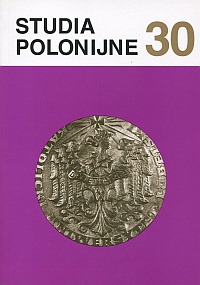The attitude of the Polish diaspora in the Republic of South Africa towards the integration of Poland and the European Union
Main Article Content
Abstract
The Polish diaspora in the RSA generally accepted the priorities of the Polish foreign policy focusing around the aspirations to integrate with the West European and Euro-Atlantic structures. At the beginning of the transformation period a full realization of these aims was seen as a program for distant future. Along with the „approaching” the united Europe tendencies began to appear to make the idea and the conception of the integration with European Communities instrumental in the political struggle in the successive election campaigns. Two tendencies were dominant here; the first one was connected with showing the threats or with frightening people with the consequences of the membership in the UE. Most often it referred to those layers of social awareness that were dominated by emotions, like a threat to the national identity or a decline in morality. Negative stereotypes of the Polish nation and stereotypes of West Europe were strengthened and deepened. The other tendency was first of all to show the positive aspects of Poland's future integration with the European Union, and its culmination fell on the period preceding the accession referendum in 2003.
The diaspora was relatively well informed about Poland’s integration with the European Union, and first of all about the position particular political parties took about the issue. However, changes in the attitude of political parties towards Poland's accession to the UE had some, albeit slight, effect on the election preferences of the Polish community in the RPA. Pro-Union parties were considerably popular among its members.

